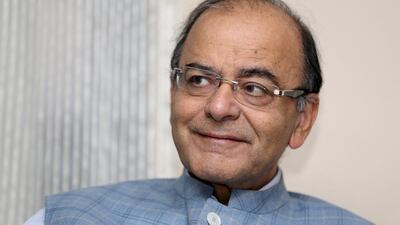With Narendra Modi’s government set to unveil its third budget today, expectations are high among Indians looking forward to measures that will stabilise the bearish markets, stimulate investment and strengthen the country’s infrastructure. The wish list is long and there are many challenges.
Despite winning the 2014 election on a promise to usher in economic reforms and create jobs, Mr Modi’s first two budgets – one just months after he took office and another last year – failed to elicit excitement because they lacked any bold initiatives.
However, the Indian economy is growing and inflation has been kept in check. Mr Modi has also expanded the political and economic reach of Indian diplomacy. He has travelled extensively, visited countries hitherto neglected at his level, conveyed a message of confidence in India’s future and offered assurances on economic opportunities and ease of doing business to would-be partners.
Many countries are keen to do business with India. Last month, the UAE signed trade agreements worth billions of dollars, underlining interest in Mr Modi’s pet programmes such as Make in India, Digital India and Smart Cities. But barriers remain, including those to foreign direct investment which have seen some large corporations give up, or scale back, investment plans. Potential investors also remain concerned about India’s reputation for its stifling red tape and institutionalised corruption.
Mr Modi must also address internal problems that hurt India’s international image. This month, the government came in for widespread criticism over the arrest of a student union leader for allegedly raising anti-India slogans. It also drew flak over its poor handling of a caste-related protest by the Jat community, and instances of forced religious conversions and attacks on churches and mosques.
Mr Modi enjoys a rare parliamentary majority, and has a golden opportunity to make changes that will empower local businesses and give outside investors the confidence to buy into India’s future.

